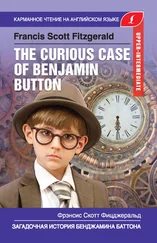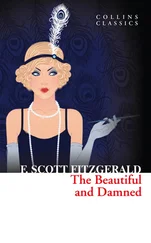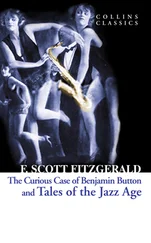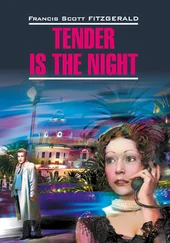He seemed to have no body and even what he had thought was his innermost self was dead. It was something deeper that was he, something that he had never felt before. Then the forces gathered for one final attack. The way that the other novice had taken was open to him. He drew his breath quickly and waited and then the shock came. The eternity and infinity of all good seemed crushed, washed away in an eternity and infinity of evil. He seemed carried helplessly along, tossed this way and that—as in a black limitless ocean where there is no light and the waves grow larger and larger and the sky darker and darker. The waves were dashing him toward a chasm, a maelstrom everlastingly evil, and blindly, unseeingly, desperately he looked at the candle, looked at the flame which seemed like the one black star in the sky of despair. Then suddenly he became aware of a new presence. It seemed to come from the left, seemed consummated and expressed in warm, red tracery somewhere. Then he knew. It was the stained window of St. Francis Xavier. He gripped at it spiritually, clung to it and with aching heart called silently for God.
“ Tantum ergo Sacramentum
Veneremur cernui. ”
The words of the hymn gathered strength like a triumphant paean of glory, the incense filled his brain, his very soul, a gate clanged somewhere and the candle on the altar went out .
“ Ego vos absolvo a peccatis tuts in nomine patris, filii, spiritus sancti . Amen.”
The file of novices started toward the altar. The stained lights from the windows mingled with the candle glow and the eucharist in its golden halo seemed to the man very mystical and sweet. It was very calm. The subdeacon held the Book for him. He placed his right hand upon it.
“ In the name of the Father and the Son and of the Holy Ghost — ”
— ◆ —
Nassau Literary Magazine (January 1917)
The scene is a boudoir, or whatever you call a lady’s room which hasn’t a bed. Smaller rooms communicate with it, one on each side. There is a window at the left and a door leading into the hall at the back. A huge pier-glass stands in the corner; it is the only object in the room which is not littered with an infinitude of tulle, hat-boxes, empty boxes, full boxes, ribbons and strings, dresses, skirts, suits, lingerie, petticoats, lace, open jewel-cases, sashes, belts, stockings, slippers, shoes—perfectly littered with more than all this. In the very middle of the confusion stands a girl. She is the only thing in the room which looks complete, or nearly complete. She needs to have her belt hooked, and has too much powder on her nose; but, aside from that, looks as though she might be presented to almost anything at almost any time, which is just what is going to happen to her. She is terrifically pleased with herself, and the long mirror is the focus of her activity. Her rather discontented face is consciously flexible to the several different effects. Expression number one seems to be a simple, almost childish, ingenue, upward glance, concentrated in the eyes and the exquisitely angelic eyelashes. When expression number two is assumed, one forgets the eyes, and the mouth is the center of the stage. The lips seem to turn from rose to a positive, unashamed crimson. They quiver slightly—where is the ingenue?
Disappeared. Good evening Sapho, Venus, Madam Du — no! ah! Eve, simply Eve! The pier-glass seems to please. Expression number three:—Now her eyes and lips combine. Can this be the last stronghold? The aesthetic refuge of womanhood; her lips are drawn down at the corners, her eyes droop and almost fill with tears. Does her face turn paler? Does—No! Expression one has dismissed tears and pallor, and again —
Helen : What time is it?
(The sewing machine stops in the room at the left.)
Voice : I haven’t a watch, Miss Helen.
Helen : ( Assuming expression number three and singing to the mirror) “Poor butterfly—by the blossoms waiting—poor butter—— ” What time do you think it is, Narry, old lady? Where’s Mother, Narry?
Narry : ( Rather crossly) I am sure I haven’t the slightest idea.
Helen : Narry! (No answer.) Narry, I called you “old lady,” because— (She pauses. The sewing machine swings into an emphatic march.) Because it’s the last chance I will have.
The machine stops again and Narry comes into the room sniffing. Narry is exactly of the mold with which the collective temperaments of Helen and her family have stamped her. She is absolutely adamant with everyone not a member of the family and absolutely putty in the hands of the least capable of them.
Narry : You might just not call me “old lady.” (She sniffs, and handkerchiefs herself.) Goodness gracious! I feel old enough now with you going out.
Helen : Coming!
Narry : Coming—
Helen : (Her mind wandering to her feet, which carry her around the room to the sound of her voice.) “The moments pass into hours—the hours pass into years—and as she smiles through —”
Peremptory voice with the maternal rising accent ascends the stairs, and curls into the bedroom.
Voice : Hel -en.
Helen : ( With more volume than you would imagine could go with such a deliciously useless figure) Yes, Mother.
Mother : (Drawing near.) Are you very nearly ready, dear? I am coming up. I have had such a hard time with one of the waiters.
Helen : I know, Mother. Tight as he could be. Narry and I watched him try to get up when they threw him outside into the yard.
Mother : (Now on the stairway landing) You and Narry should not have done any such thing, Helen dear. I am surprised at Narry. I— (She seems to pause and pant.)
Narry : (Almost shouting) I do declare, Mrs. Halycon. I—
Mrs. Halycon appears in the doorway and becomes the center of the stage. She is distinctly a factor in the family life. Neither her daughter’s slang nor her son’s bills discourage her in the least. She is jeweled and rouged to the dowager point.
Mrs. Halycon : Now, Narry. Now, Helen. (She produces a small notebook.) Sit down and be quiet. (Narry sits down anxiously on a chair which emerges from the screen of dresses. Helen returns to the pier-glass, and the sequence of expressions passes over her face in regular rotation.) Now, I’ve made some notes here—let’s see. I’ve made notes on things you must do. Just as I have thought of them, I have put them down. (She seats herself somewhere and becomes severely judicial.) First, and absolutely, you must not sit out with anyone. ( Helen looks bored.) I’ve stood for it at your other dances and heaven knows how many dances of other people, but I will not, understand me, I will not endure to look all over for you when some friend of mine, or of your father’s, wants to meet you. You must tonight, you must all season—I mean you must stay in the ballroom, or some room where I can find you when I want you. Do you understand?
Helen : (Yawning) Oh, yes! You would think I didn’t know what to do.
Mrs. Halycon : Well, do it if you know how. I will not endure finding you in a dark corner of the conservatory, exchanging silliness with anyone, or listening to it.
Helen : (Sarcastically) Yes, listening to it is better.
Mrs. Halycon : And you positively cannot give more than two dances to young Cannel. I will not have everyone in town having you engaged before you have had a fair chance.
Читать дальше












